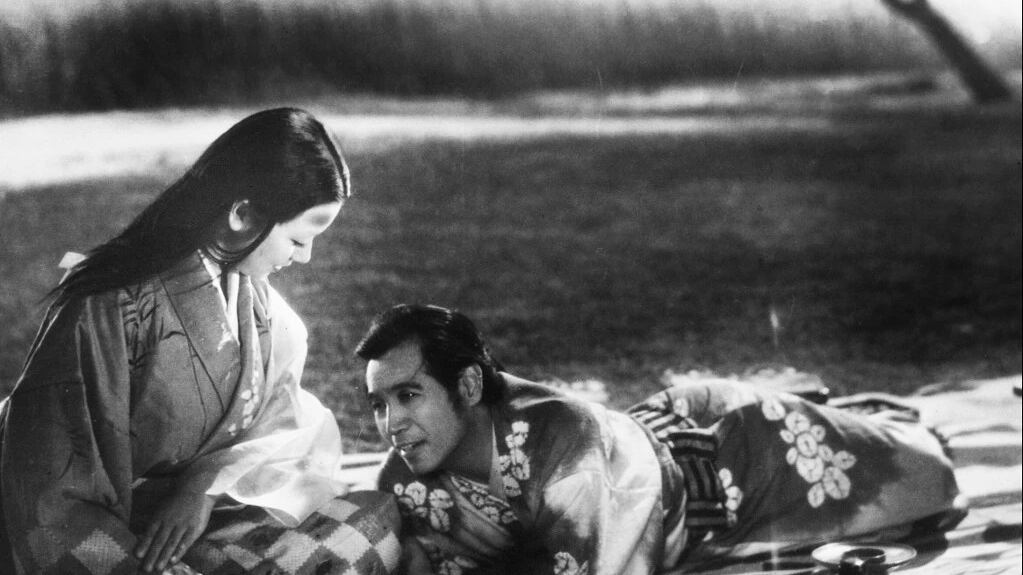Ugetsu (1953)
On its face, the midcentury Japanese classic Ugetsu is a “careful what you wish for” yarn. Yet there are grander dimensions to this tale of two peasant husbands (Masayuki Mori and Eitarô Ozawa) so preoccupied by dreams of material wealth and military glory (respectively) that they’re blind to their wives (Mitsuko Mito and Kinuyo Tanaka) and a raging civil war.
Based on two 18th century tales by Ueda Akinari, Ugetsu becomes more than a mere parable by slipping into macabre eeriness. The husbands, Genjuro (Mori) and Tôbei (Ozawa), encounter the ghostly remnants of fallen noble houses and disgraced samurai—and director Kenji Mizoguchi employs languid pans, misty auras, atonal flutes, and mournful folk songs to suggest the netherworld they’ve invited.
True to form, Mizoguchi, who made many films about the plight and strength of Japanese women (from Osaka Elegy to The Life of Oharu), lets the spurned wives have their say in scorching fashion. In a critical, dust-settling scene, it’s Ohama (Mitu) who tells Tôbei the brutal truth: “You were too stupid to learn except through misfortune.”
See Ugetsu at the Clinton Street Theater on July 27 as part of its Hanabi Japanese Film Festival.
ALSO PLAYING:
5th Avenue: Angel’s Egg (1985). Ghost in the Shell (1995), July 28-30. Cinema 21: Rosemary’s Baby (1968), July 29. To Kill a Mockingbird (1962), July 30. Clinton: A Letter to Momo (2011), July 29. The Tale of Zatoichi (1962), July 31. Floating Weeds (1959), Aug. 1. Hollywood: Fight Club (1999), July 28-30 and Aug. 3. Lone Wolf and Cub: Baby Cart at the River Styx (1972), July 29 and 30. Living Room: Cape Fear (1962), July 30.

